Young readers will be able to relate to something in the experience of the characters on this list of great middle great books with Jewish protagonists
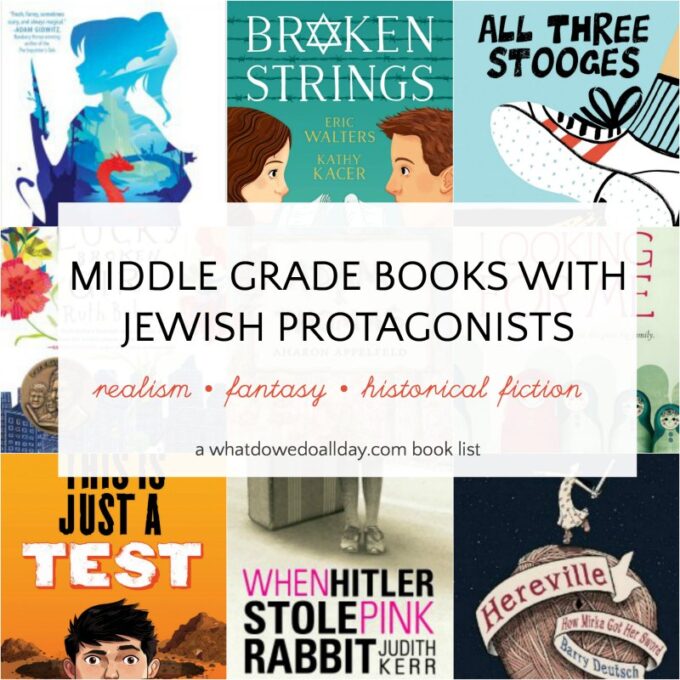
(Note: this post contains affiliate links that earn from qualifying purchases.)
Table of contents
Contemporary Jewish Realistic Fiction
Many of the action of the books in this section play out against the backdrop of getting ready for a bat or bar mitzvah. The settings are either contemporary or in the near past.
Broken Strings by Eric Walters and Kathy Kacer. Shirli loves acting and singing. She gets a part in the school production of Fiddler on the Roof, and even though it's not the role she wanted, she throws herself into it. Shirli regularly visits her grandfather, a Holocaust survivor. One day, Shirli finds a violin in his attic, which is odd, as she understands her grandfather never wants to listen music. Slowly Shirli learns her grandfather's dark story, and when the musical production loses its director, Shirli's grandfather takes up his violin once again. The action of this story takes place in the wake of 9/11 and the characters reflect upon the current role of prejudice in their community.
This is Just a Test by Wendy Wan-Long Shang and Madelyn Rosenberg. I loved this book. It's the early 1980s and David is prepping for his bar mitzvah. His two grandmothers, one Jewish and one Chinese, are not making things easy for him with their constant bickering over whether David's Jewish or Chinese heritage should take precedence. On top of that, David and his friend are secretly building a fallout shelter, inspired by the movie, The Day After. Kids will love the humor, David's character and the slightly historic ("slightly historic"–is that a thing?) setting adds an interesting layer without becoming too remote for a contemporary audience.
All Three Stooges by Erica S. Perl. Noah Cohen and his best friend, Dash. love comedy, especially The Three Stooges. Along with their peers at Hebrew school, they are working on a mitzvah project with the theme "Jewish comedians." However, when Dash's dad dies suddenly, Noah and Dash's friendship struggles for air. Despite some serious themes in this novel, author Erica Perl has struck an excellent balance between describing the pain that both Noah and Dash feel and humor in some of the situations.
My Basmati Bat Mitzvah by Paula J. Freedman. Tara is getting ready for her bat mitzvah, but she is conflicted about her cultural identity and her faith. Her Indian mother converted to Judaism before Tara was born so Tara knows that “technically” she is Jewish, even though a girl at school tries to make her think otherwise. Tara is navigating middle school waters for the first time, re-evaluating her relationship with her best friends and having in-depth conversations with the Rabbi about God. Even though Tara experiences the typical early teen angst in her relationship with her parents, it is clear that they are a supportive unit and her extended family, also living in NYC, are an integral part of their family life. This is a terrific read, especially for kids who come from similarly complex backgrounds, but also to teach kids about the diverse experiences of multicultural families.
Lily and Dunkin by Donna Gephart. This is a marvelously written story told in alternating voices. Lily Jo knows she is a girl, but most of the world knows her as Tim. She has the support of her mom, sister and best friend but Lily needs the love and support of her father in order to gain the confidence and medication she needs. Dunkin is the new kid in town; he and his mother have moved in with his fitness-obsessed "Bubbie." He struggles to come to terms with his bipolar disorder and find out where he fits in. The two protagonists may have difficulties that most kids won’t experience, but their journeys to express themselves, find their own way and make the right friends will resonate will all middle schoolers.
NOTE: Gephart has written a number of books with Jewish characters that I highly recommend including Death by Toilet Paper, The Paris Project and In Your Shoes.
The Whole Story of Half a Girl by Veera Hiranandani. Sonia Nadhamuni is half-Jewish, half-Indian but she isn't sure how she identifies. Neither of her parents are particularly observant and now that she is no longer in a small, private school her new classmates ask lots of questions about her identity. Her skin is dark, but she doesn't identify as black and in her new school she sees the way black and white students segregate. Where does she fit in? On top of that she must figure out which of the girls truly want to be her friends.
Fantasy with Jewish Characters
Anya and the Dragon by Sofiya Pasternack. I read this aloud and my son absolutely loved it. Set in medieval Russia where the common use of magic is now against the law, Anya still hopes that her own magic talent will reveal itself to her. Because her family is Jewish, they are outsiders in their village and the local magistrate is trying to force them out. When Ivan and his family, a family allowed to use magic, come to the town they enlist Anya’s help in tracking down a mysterious water dragon. Anya agrees to help them in order to save her family's farm. Anya and Ivan must protect the dragon from others who want to destroy it. Pasternack skillfully draws upon story elements from Russian, Slavic and Jewish folklore.
Hereville: How Mirka Got Her Sword by Barry Deutsch. What's that, you say? You are looking for a graphic novel about an orthodox Jewish girl who dreams of slaying dragons? Well, you've come to the right place. Mirka is 11 years old and not interested in the stereotypical "female pursuits." For example, she is a terrible knitter. The book opens with Mirka trying to convince her stepmother that God must want her to make kitting mistakes. When you see what role knitting plays in overcoming the terrible troll, you will probably agree with Mirka's assessment. One day Mirka finds herself in a kerfuffle involving wrestling a pig (although no one believes her, and what is a pig doing in an Orthodox community, anyway, they all say) but that's just the beginning.
The Inquisitor's Tale: Or, The Three Magical Children and Their Holy Dog by Adam Gidwitz. Multiple narrators describe the adventures of several children and their (potentially) holy dog. This book is an amazing mix of morality tale and puzzling mystery. Jeanne with her psychic visions, William, a biracial Muslim monk with superhuman skills, and Jacob, a Jewish fleeing his destroyed village who has healing powers come together for an adventure that enriches their lives, as well as the lives of the readers. There is some intense actions so this story is not for the feint of heart.
Historical Fiction (Not WW2)
If you are looking for historical fiction featuring Jewish characters that do not take place during the events of World War II, your children will enjoy this eclectic collection titles.
Lucky Broken Girl by Ruth Behar. In the 1960s, Ruthie and her family are recent Jewish-Cuban immigrants living in New York City. After a car accident, Ruthie suffers terrible injuries and is placed in a full body cast. Confined to bed and totally dependent on others, Ruthie's physical world narrows, but as others come to visit her, Ruthie begins to collect stories and her emotional and intellectual world expands. The author based the story on her own experiences and this is a wonderful, moving book
All-of-a-Kind Family by Sydney Taylor. This is a classic series about a Jewish family with five girls growing up on the Lower East Side of New York City in the early 20th century. This book is on every “must read books” list you can imagine and the old-school adventures of the family are heart-warming and entertaining.
Looking for Me: ...in This Great Big Family by Betsy R. Rosenthal. In this verse novel, 11-year-old Edith is the fourth of twelve children in a Jewish family, growing up in Depression-era Baltimore. Edith feels a little lost in her family and the text is full of her observations–sometimes funny, sometimes sad, always insightful–about her siblings, parents, friends and neighborhood. Edith loves learning and dreams about being a teacher, even though she doesn't feel very smart. However, she gains the quiet support of a few special people and learns to identify herself as something other than "the fourth child."
Letters from Rifka by Karen Hesse. It's 1919 and Rifka's family is escaping the anti-semitic policies and violence of Russia. During their escape and travels through Poland, they suffer illness, humiliation and hardship. When Rifka is denied passage due to a contagious skin infection, she must stay behind until she is well. She stays with an empathetic family in Belgium, learning how to be independent and and confidence, gaining skills which serve her well when she finally boards a ship to Ellis Island, where she faces further hurdles. Written in epistolary form, this is a relatively short, but utterly engaging book.
Historical Fiction: WW2
It can be difficult and painful to discuss the Holocaust with our children and often we don't know where to begin, or what is appropriate to tell our young children. From personal experience, I know that kids as young as 9 can fully grasp the horrors of what happened to the Jewish population of Europe and ask curious, relevant questions. As well as the books below, our list of children's books about the Holocaust will help you start the conversation.
When Hitler Stole Pink Rabbit by Judith Kerr. Kerr based this novel on her own experiences leaving Nazi Germany and living in Switzerland and France, before finally heading towards England. As a young Jewish girl, Anna is aware that something unsettling is happening in her home country, and her father's livelihood is threatened, but she doesn't quite understand the danger Hitler poses. While in Zurich and Paris, young Anna must learn how to navigate new schools and cultures, make new friends and accept that her family life is irrevocably changed. Through it all, Anna hangs on to the idea that as long as their family is together, that is all that matters.
Adam and Thomas by Aharon Appelfeld. This story of two Jewish boys who hide in the forest is incredibly moving. The boys have been sent into the forest by their mothers. They build a nest in the tree and when their supplies run out, they start to forage for food. A peasant girl leaves them food and Adam's dog Miro finds them deep in the forest with a message from his mother. The war intrudes into the forest in small ways when people pass though. Everyone tells them to stay in the forest and hide. When winter comes the struggle to survive becomes more urgent. The narrative style is quiet, almost dreamlike and the narration switches between the two boys' viewpoints as they learn valuable lessons from each other. (Originally published in Hebrew)
Hidden: A Child's Story of the Holocaust by Loïc Dauvillier, Greg Salsedo, and Marc Lizano. This is an extraordinarily touching graphic novel, and a very child-appropriate tale of the Holocaust. Dounia tells her granddaughter her experience of being hidden during WWWII in France when her parents were taken to concentration camps. The brilliance of this book is we hear and see the story from the viewpoint of both child and grandparent, with key points told through illustrations that compel the reader to ask more questions and analyze for themselves what is happening.
More middle grade books to read:


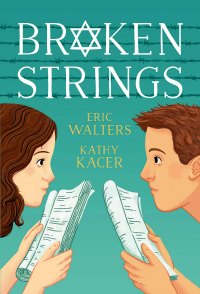
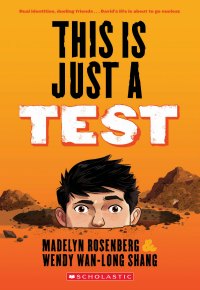
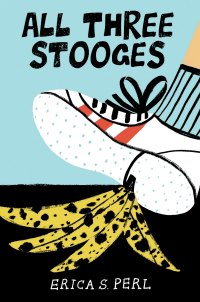
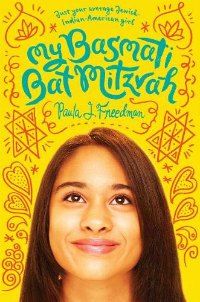
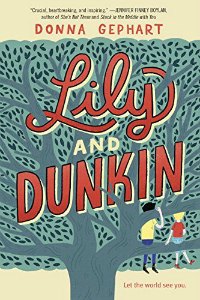
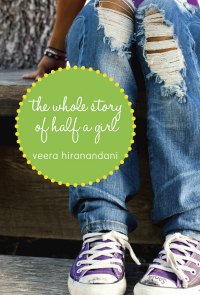
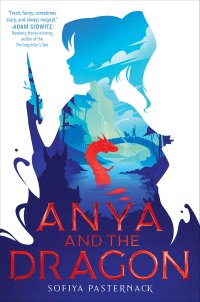
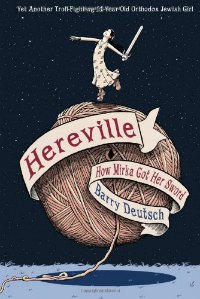
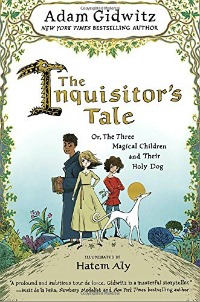
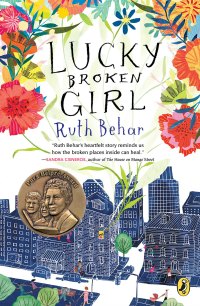
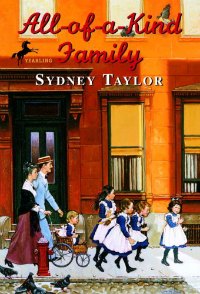
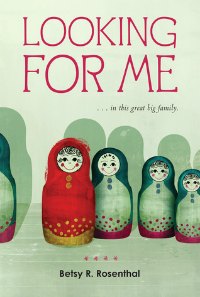
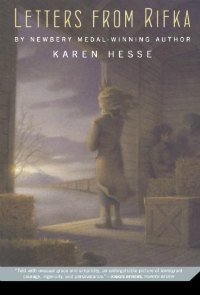
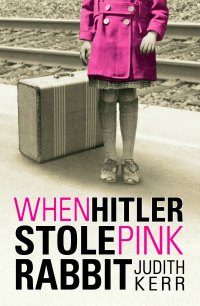
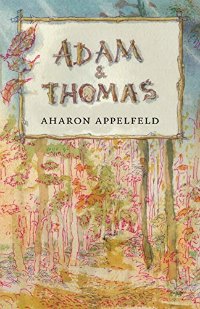
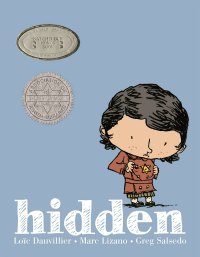

Felicity says
Australian author Morris Gleitzman has written the most wonderful series of books about the experiences of Felix, a young Jewish boy, during the Holocaust.
The first book is called "Once". The other titles are: Then, Now, After, Soon, Always and Maybe.
These books are well worth adding to your list. They're brilliantly written
Maura says
It's a bit older, but I also highly recommend Confessions of a Closet Catholic by Sarah Darer Littman. SUCH a great book about adolescence and Jewish identity. It was published in 2006.
Erica says
Thanks for the recommendation!
Batsheva says
I'd recommend One Is Not A Lonely Number by Evelyn Krieger, winner of the 2011 Sydney Taylor Award. Features a modern orthodox girl narrator who has an unusual relationship with numbers. Topics and themes include: only children, Jewish life, friendship betrayal, math competition, adoption, and secret-keeping. Ages 9-13.
Erica says
Thanks for the recommendation!